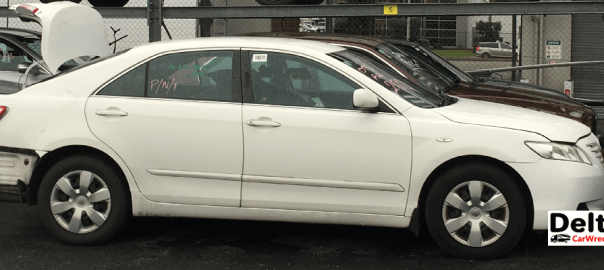Car batteries contain a lot of hazardous materials. Depending on the type of battery, this can include sulfuric acid, lead, plastic, and more.
It’s important, therefore, that car batteries are properly dealt with when you scrap a car in Auckland.
In some circumstances, it may be possible to recondition the battery and/or sell it as a used part. Usually, however, the battery in your old car is as scrap as the car itself.
Luckily, it’s possible to recycle almost your entire old battery – up to 99 percent of the battery, in fact. The recycled parts are then used for a wide range of different purposes.
Read on below to find out what happens to your car’s battery when it is scrapped and recycled. Before going on, however, it’s important to point out that you should always use a reputable car wreckers in Auckland when disposing of an unwanted car. In particular, you should use a car wreckers that has robust environmental standards and procedures.
Car batteries are the perfect example of why this is important, given the substances that batteries contain. Many of these substances can cause damage to the environment, wildlife, and people if they are not disposed of properly.
Recycling Your Car’s Old Battery
So, what happens to your battery when you sell your car to a wreckers in Auckland?
Providing you sell your car to a reputable car wreckers, like us at Delta Car Wreckers, the battery in your car will be sent to a specialist recycling centre. There, it will be broken up to separate the plastic from the lead and other metal materials.
The plastic is washed and dried before being melted down to molten plastic which can be put through an extruder. This produces plastic pellets which can then be used for manufacturing other plastic products. Often, the plastic recycled from batteries is reused to make new batteries.
As for the lead, it is first melted. Other metals are separated from the lead and the lead itself is then used for other products. Again, this is often to manufacture new batteries.
The only thing left at this point is usually the battery acid. It is separated from the other materials and component parts in the processes above. It is then usually dealt with in one of two ways:
- The acid is neutralised with an alkaline to turn it into water. This water can then be safely discharged into a drain after it has been checked.
- The acid can be converted into another material. Usually this is sodium sulphate, a substance which can be reused for other purposes.
Choose an Environmentally Friendly Car Wreckers in Auckland
As with other components in your car, batteries should never be simply dumped in landfill. Therefore, make sure you choose a car wreckers that sends scrap car batteries for recycling.
